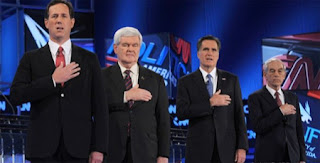“I apologize for participating in
this conspiracy of silence.”
–Rev. Delman
Coates, 2012
 As a Black/male/Christian/gay/preacher/pastor, what I find
most frustrating is that many Black congregations were places of refuge and
safety from the violence and mistreatment done to African American people
during Jim Crow and our struggle for civil rights. Both of which I might add, were opposed by
the white majority on the belief that God did not create all men and women
equal—and they used the Bible to justify that position. Of course, now, you cannot find one Black
congregation that would accept such tenets.
We condemn slavery, as well as the separation of races and consider them
to be great evils. Yet, these historical precedents are no different than the
experiences LGBT people face in our society today.
As a Black/male/Christian/gay/preacher/pastor, what I find
most frustrating is that many Black congregations were places of refuge and
safety from the violence and mistreatment done to African American people
during Jim Crow and our struggle for civil rights. Both of which I might add, were opposed by
the white majority on the belief that God did not create all men and women
equal—and they used the Bible to justify that position. Of course, now, you cannot find one Black
congregation that would accept such tenets.
We condemn slavery, as well as the separation of races and consider them
to be great evils. Yet, these historical precedents are no different than the
experiences LGBT people face in our society today.
The Bible, as I teach and preach from it, is not meant to be God, but to lead people into
relationship with God. Unfortunately,
in the traditional African-American church, it has morphed into the single
largest weapon used to keep LGBT men and women from living before God whole and
fully human.
 In a recent article published in the Washington Post, a prominent African-American Maryland pastor, Delman Coates of Mount Enon Baptist
Church, spoke up then out in support
of the Same Sex Marriage Bill in his home state. Coates is quoted as saying,
“Gays and lesbians are a part of our communities, they are a part of our families,
[they are] a part of our church families. I believe the church ought to be a
place where all people, regardless of their lifestyle, ought to be welcome.”
In a recent article published in the Washington Post, a prominent African-American Maryland pastor, Delman Coates of Mount Enon Baptist
Church, spoke up then out in support
of the Same Sex Marriage Bill in his home state. Coates is quoted as saying,
“Gays and lesbians are a part of our communities, they are a part of our families,
[they are] a part of our church families. I believe the church ought to be a
place where all people, regardless of their lifestyle, ought to be welcome.”
While Black churches are far from monolithic, and certainly
not on this issue, most progressive conversations regarding the right of same
gender loving couples to openly acknowledge and affirm their love and relationships
in the Church has been silenced. Silenced under the literal interpretations of
the Bible and what some think it says about homosexuality, marriage and sin.
To believe that LGBT people are created in the image and
likeness of God and worship as such in the historical Black church is not only
unlikely but close to impossible. Homophobia in the Black church has outlasted
slavery, Jim Crow, the Civil Rights Movement, Don’t Ask-Don’t Tell and even the
election of the first African-American President of the United States of
America.
While Coates may not have it totally right, as he wrongly
asserts that homosexuality is a “lifestyle” choice, he is headed in the right
direction with such a bold and courageous declaration. His statement is more
congruent with what it truly means to
capture the essence of African religion which is pragmatic, informative and
communal—where everyone has a soul and religion permeates all dimensions of our
lives and strengthens our humanity.
We, as Black gay men and women, are being characterized as
the ‘great evil’, and denied civil and human rights because of biblical
[mis]interpretations, based on fear, hate, ignorance and prejudice. How is it
that those being most oppressed in society are perceived to have the power
necessary to destroy the entire institution of marriage simply because they
want to openly affirm their love for their same gendered partner with God’s
blessing in the church?
 We who claim spirituality, shaped not only by our American
history but also by our African past, must become a people willing to engage
the Bible not as God but as a pathway to better know a loving God. A
puritan morality that gave our community the idea that the only moral sexual
position was the “missionary position” has done as much to demean God’s rich
gift of sexual expression and the belief that love is God’s gift to all
humankind.
We who claim spirituality, shaped not only by our American
history but also by our African past, must become a people willing to engage
the Bible not as God but as a pathway to better know a loving God. A
puritan morality that gave our community the idea that the only moral sexual
position was the “missionary position” has done as much to demean God’s rich
gift of sexual expression and the belief that love is God’s gift to all
humankind.


